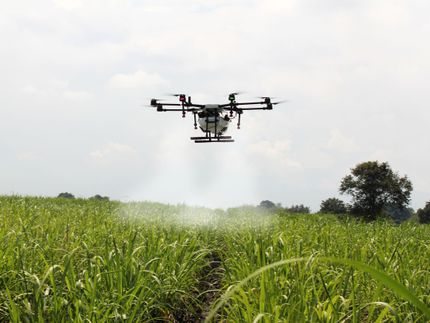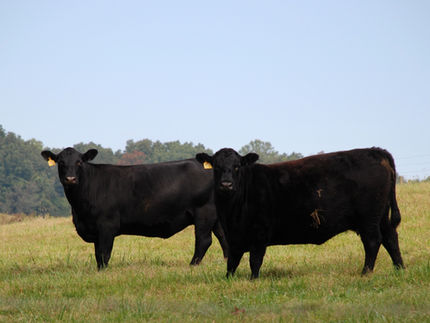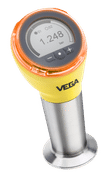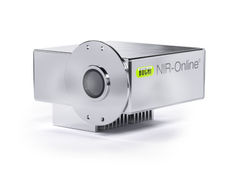Digital agriculture in dialogue
Advertisement
Johann Schneider-Ammann, Head of the Department of Economic Affairs, education and Research, visited ETH Zurich on Friday. At an event on smart farming, he explained his perspective on digitalisation in Swiss agriculture.
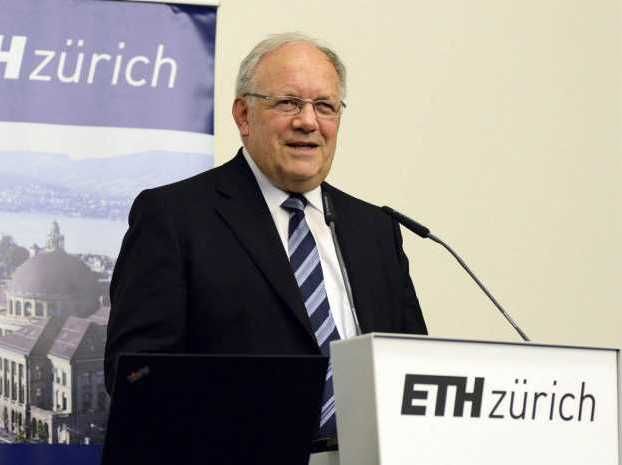
Seizing opportunities: Federal Councillor Johann Schneider-Ammann spoke about the business potential of digitalisation at an event on smart farming.
Andreas Eggenberger/ETH Zurich
The idea for this event came about during a conversation with Lino Guzzella at the start of the year, remembers Federal Councillor Johann Schneider-Ammann: “We talked about how we could introduce the concept of smart farming to our agriculture.” Smart farming promises a data-driven, automated agricultural system: sensors monitor fields, robots clear weeds – it’s very possible that agricultural farmland will soon look completely different.
And this is not a far-off dream – there is a lot of research currently being conducted in this area. However, there are still many unanswered questions, and a need for dialogue. ETH Zurich therefore invited players in the agricultural sector to an event to ask: “Smart farming – what does it mean for Switzerland?”
Key for efficiency and sustainability
ETH Zurich offered to lead the discussion, with experts each providing their own perspective, emphasised ETH President Lino Guzzella in his introductory speech: “Our university has a long tradition in agricultural and engineering sciences.” Combined with cutting-edge methods from data science and the natural sciences, the opportunity is now there to develop new ecological and economic success models for Swiss agriculture.
Johann Schneider-Ammann concurred. The Federal Councillor was convinced that new technologies will make agriculture more sustainable. Digitalisation does not only play out in machines, however, he acknowledged, in reference to our “fascinating” mental images of robots. Speaking from an entrepreneurial viewpoint, he particularly emphasised the importance of web platforms and data exchange.
The networking of companies with their suppliers and customers creates scope for action and new niches for products. Countries that take advantage of digital opportunities generate more jobs than they lose, said Schneider-Ammann, and affirmed that the federal government wants to speed up the digitalisation of agriculture.
More than just technology
Achim Walter, Professor of Crop Science, discussed the latest developments in digital agricultural research. He gave two examples: a spidercam system in Eschikon that helps to monitor plant growth and thereby improve breeding programmes; and a collaboration between drones and floor-mounted robots that together identify and remove weeds. “Smart farming is driven by technology, no question,” said Walter, “but it also depends on agricultural diversity, on institutions, markets and networks.” And that demands a holistic view.
Together with other professors, Walter is therefore not only conducting research on intelligent systems, but also on aspects such as the practicality, economic viability and ecological value of an innovation. He illustrated this with the InnoFarm project, which aims to reduce the use of fertilisers using drones and sensors. The researchers involved are not only quantifying the environmental effect, but also analysing cost-benefit and optimal operation.
Advances in robotics and autonomous systems must be oriented to the needs of users, said Walter. This is why smart farming also involves dialogue between agriculture, politics, research and other stakeholder groups.
Administration, data protection and cooperation
The goal of using smart technologies to economise efficiently and in an environmentally-friendly way was also welcomed by participants at the panel discussion. However, farmers are still struggling with digital utilities in need of improvement, said Hanspeter Hunkeler, farmer and member of the think tank Vision Landwirtschaft; platforms for data exchange are a good idea, but legal questions and data protection are also issues of concern. Francis Egger, member of the Swiss Farmers’ Union Management Board, thus stipulated that farmers must retain ownership of their data. Corinne Müller from the agricultural machinery company Müller Siblingen also emphasised the risks in corporate networking via data platforms.
With an eye to the future, Michael Buser, Head of IT at the agricultural association Fenaco, suggested that competitive pressure is increasing for farmers. They must therefore increase cooperation with research and with one another. On this topic, Müller highlighted the sharing model for equipment use.
The discussion made one thing very clear: farmers are suffering under the burden of operational management. The panel participants unanimously located the biggest opportunities in simplified administration. “I hope that digitalisation will make our work as farmers easier,” concluded Hunkeler.



